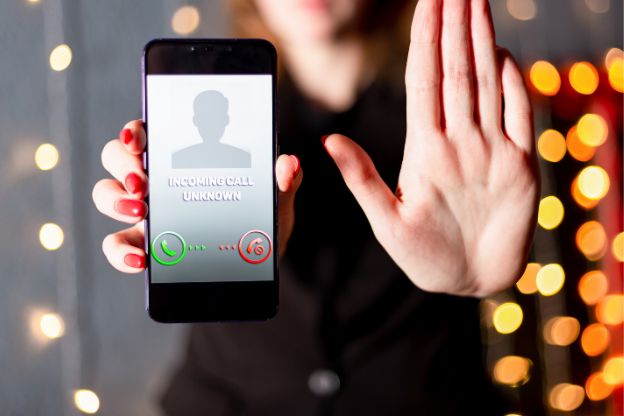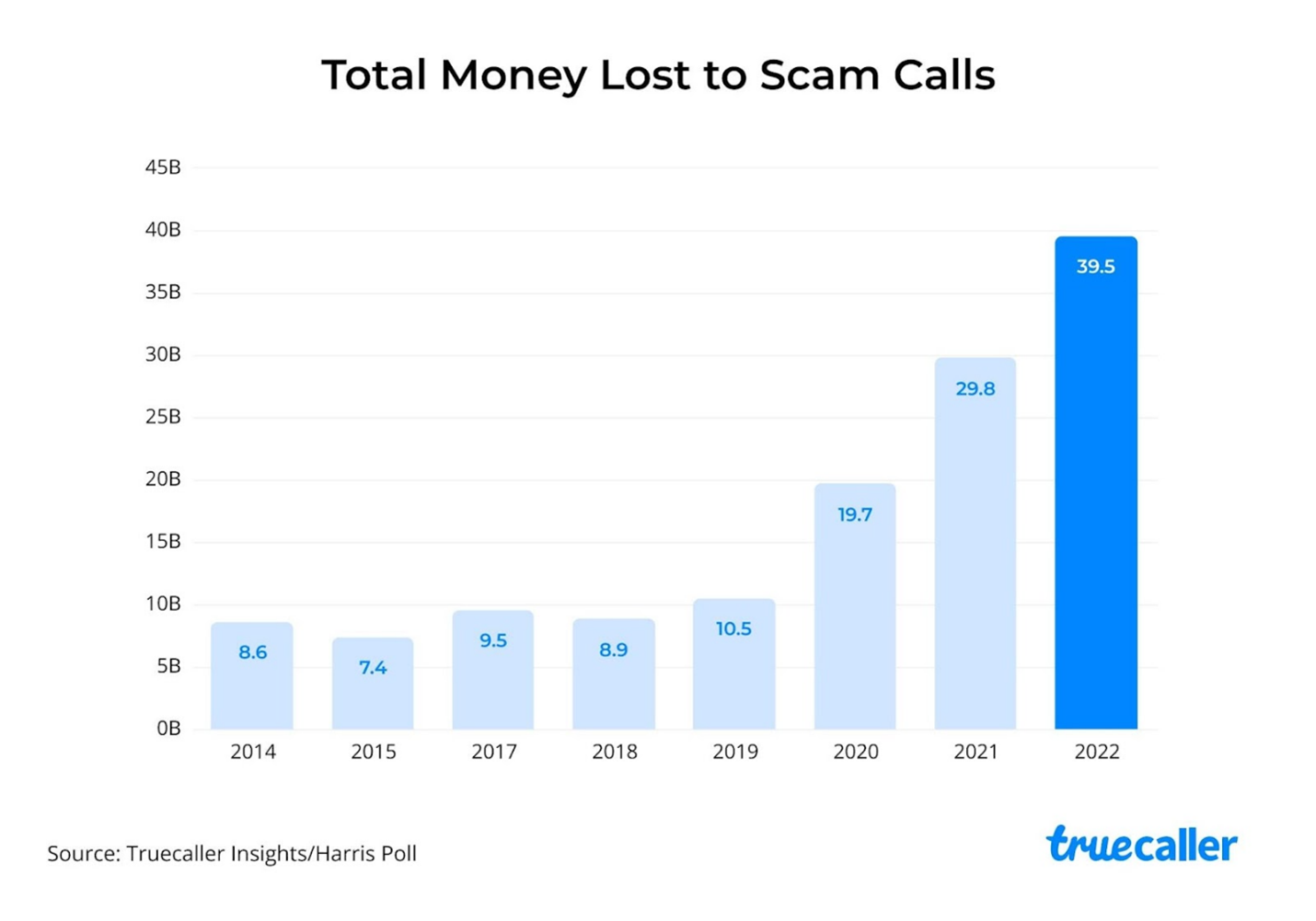
While the world continues to focus strongly on cybersecurity initiatives across continuously evolving digital landscapes, one type of attack remains prevalent – phone scams.
According to the Truecaller Insights 2022 U.S. Spam & Scam Report, phone scams cost Americans just under $40 billion in 2022, impacting nearly 70 million people. This represents a 32% increase year-over-year and clearly shows that phone scams are still a significant concern.
In 2023, staying informed about the growing phone scam trends and taking practical measures to safeguard yourself is essential.

Smishing is a fraudulent activity where cybercriminals impersonate legitimate entities through text messaging. They aim to extract confidential data from unsuspecting individuals. Their target data typically includes sensitive information such as Social Security numbers, account usernames and passwords, bank account details, and credit card numbers.
In addition to this, smishing texts often contain harmful links that unwitting victims are encouraged to open. By doing so, malware may be installed on their device, or they may be redirected to a fake login or billing page.
An effective way to protect yourself from smishing scams is to NEVER CLICK ON LINKS AND/OR ATTACHMENTS sent via SMS by unknown senders or even senders who appear to be legitimate and DON’T RESPOND TO THE COMMUNICATION. No matter how brief, engaging with scammers can open the floodgates to an avalanche of unwanted spam texts and calls. Responding is enough to tip them off that your number is active, inviting more fraudulent messages.
But what if the calls seem legitimate? This is when it becomes critical to stay vigilant and listen for signs that may point to fraudulent activity. For example:
We worked with a client who reached out to their credit card company and requested a call back. Later the same day, they received a call from an individual claiming to represent the company and gave context about the inquiry they made earlier – which seemed legitimate enough.
However, as the call went on, the caller started asking for sensitive information that the company should have already had access to. Adding even more suspicion, the caller wanted to remote into their account through their personal computer – something that would never be needed from a legitimate credit card company. Thankfully they disconnected the call.
What this example shows is that ANY call you receive that requires you to give up sensitive information or exchange financial details should ALWAYS be taken with high caution. There have been reported cases of customer support call centers, commonly used by banking institutions, housing malicious insiders who farm off information from customer calls to other scammers. This should instill the importance of treating every phone call you receive from outside organizations, even if they’re expected, as a potential risk to your privacy.
The Federal Trade Commission (FTC) has recently released data showing that in 2022, phone impersonation scams were one of the most prevalent types of scams reported, with more than 700,000 incidents reported.
Phone scams of this nature are frequently carried out through automated or human-operated calls. Individuals or entities may assert to be Internal Revenue Service (IRS) officials, purporting that the intended target owes money or is qualified for a stimulus refund.
Government organizations will never ask for sensitive information like your Social Security number, bank account number, or credit card details over the phone. So if you receive a call from an individual claiming to represent the IRS, don’t give any information and wait for correspondence through a reputable channel or contact the IRS directly.
Scammers often pose as good-hearted citizens, raising money for charities and causes. This has been more common since the pandemic and the rise in inflation, with many scammers taking advantage of people’s goodwill and generosity.
Counterfeit charities may falsify phone numbers to mimic those of credible charitable organizations, also known as “spoofing.” To guarantee that your contribution is directed towards the intended recipient, it is crucial to conduct adequate research and investigate the charity’s website or reach out to them directly to confirm their authenticity before contributing.
In addition to traditional methods, numerous charitable organizations offer online donation options. This method is much more secure than giving credit card information over the phone.
Phone scams frequently target seniors who may not possess the same technical knowledge as younger generations. Fraudsters often adopt the guise of IT support representatives from reputable corporations and assert that they have detected potential security breaches on a person’s machine, requesting access to rectify it.
Most of these calls, if not all, are fake, and scammers just want to gain remote access to your computer so they can steal your personal data or install malicious software such as ransomware.
IT support departments generally do not monitor personal computer systems for potential threats due to privacy concerns. However, if you receive a call from someone claiming to be from IT support and asking to access your system, it’s best to disconnect immediately and block the number.
To ensure that your computer doesn’t have a virus, you should speak with an IT professional directly to install a reputable antivirus or anti-malware solution that is monitored.
Being aware of the different types of phone scams is a crucial step toward protecting yourself from con artists. Whether it’s IRS impersonators, fake charities or IT computer support calls, you should always be on guard and never give away personal information over the phone.
If you are ever in doubt about a suspicious call, hang up and locate the company’s actual contact info from the company website to speak with someone there directly and verify its legitimacy before taking any action. Keeping your data secure requires diligence but can save you from becoming another victim of these scammers – so stay alert and stay safe!
Important! We hate spam as much (or more!) than you and promise to NEVER rent, share, or abuse your e-mail address and contact information in any way.